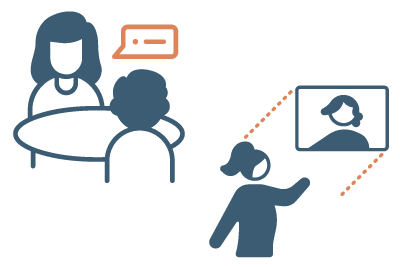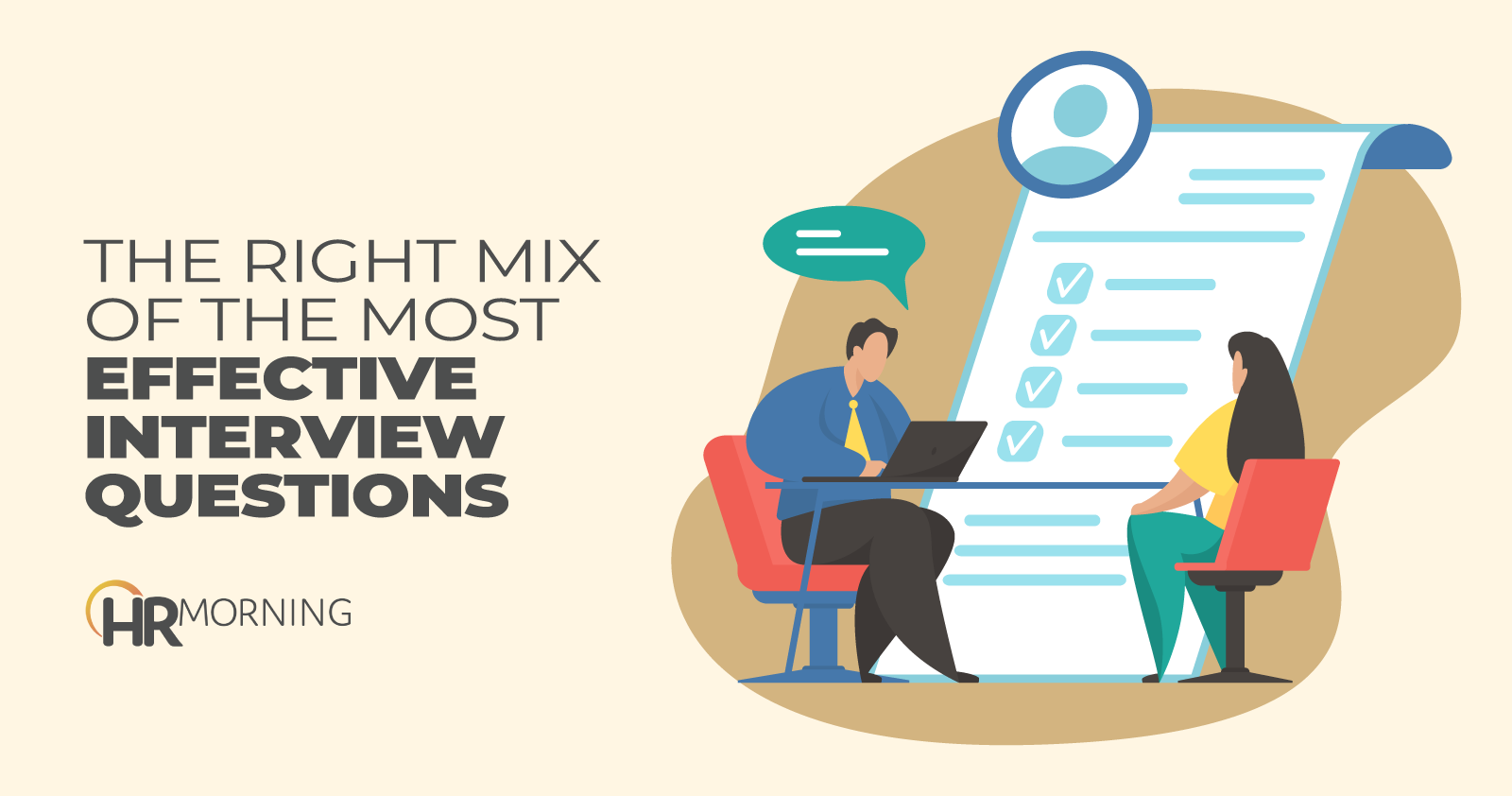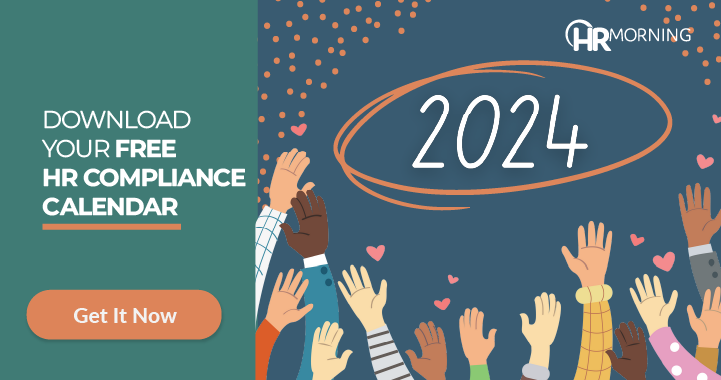The success of any organization is a direct result of its employees and their abilities to contribute.
That makes human resources managers’ role in the hiring process critical to their organization’s success. From promoting the company and individual roles to screening applicants and asking the most effective interview questions, HR needs to command a thorough process.
And today, evaluating and selecting the right candidates is almost always a struggle. Almost half of recruiters say they find it difficult to recruit and fill open positions, according to a survey by The Harris Poll and Express Employment Professionals.
Regardless of the job market, it can be a challenge just to make your open roles appealing to job seekers. And even when you manage to evaluate candidates, their qualifications and level of interest in your organization, sometimes you still can’t separate the great candidates from the good – or even the bad.
Why the most effective interview questions matter
That’s where effective interview questions come in. When HR and hiring managers ask the right questions, you’ll more likely get candidates to open up and reveal their personalities, qualification and overall fit for the job.

Through effective interview questions, you can identify the ideal employees and hopefully hire them to help their teams and the organization continue to succeed.
Keep in mind, you want to keep interview questions professional and work-related. Generally, skip the silly questions usually meant to catch candidates off guard.
You can still ask questions that gauge personality and critical-thinking skills (more on those later), but they’ll be more effective when they’re related to the work environment and the job in question.
Here are four categories of job interview questions you’ll want to include in your hiring process.
Questions about professional experience and skills

A résumé is a thorough roadmap of job seekers’ experience. It also gives you a good overview of their skills. But it doesn’t give the full picture of potential employees’ abilities, depth of experience and variety of skills.
Pose these questions or prompts to dig deeper:
1. Tell me about your previous work experience and how it relates to this role.
- Why ask: You want to hear how past experience can positively impact the role and your organization — even if what they have to offer is just a new, valuable perspective.
- What it gauges: Their ability to understand the role, and the impact they can have on it and your organization.
- The ideal answer: They identify what’s transferable from previous roles, plus areas where they can provide unique perspective.
2. What specific skills and expertise do you bring to this position?
- Why ask: The résumé can’t show their full range of capabilities.
- What it gauges: Not only their strengths, but also their aptitude on what matters for the role they may take.
- The ideal answer: It involves detailed information on what they know and can do, plus how those relate to the role they’re interviewing for.
3. How have other positions you’ve held fostered your career goals?
- Why ask: It’s smart to ask candidates about their expectations for the job and where it will lead them.
- What it gauges: You can shed light on what candidates are looking for in a new position — and if the one you have is a right fit for them.
- The ideal answer: What they say aligns with the role, career path and professional growth you have to offer.
4. How do you stay up to date with developments in your field?
- Why ask: You want to know if the candidate makes an effort to improve skills, expand knowledge and become better.
- What it gauges: Their ability to recognize the need to develop skills and knowledge — and the drive to pursue information and training.
- The ideal answer: They find ways to learn through a variety of methods — requested help, hands-on training, individual study and group training.
Questions about company culture fit

Questions about company culture fit could be some of the most important you’ll ask candidates. You don’t want new hires to find out they don’t fit in and can’t thrive. And you don’t want to bring on someone who might become toxic to your positive company culture.
On the flip side of the culture coin, beware of hiring just for fit. When you lean too heavily on finding clones for your culture, the organization will become less diverse, creative and productive.
Ask or prompt with these:
5. How do you feel your values align with those of our company?
- Why ask: First off, you want to be sure they understand your company values. They don’t have to align completely, but you’ll want to hear an understanding.
- What it gauges: Personality and the degree of values candidates bring to work — and if those are similar enough to your organization’s to make it work.
- The ideal answer: Values don’t have to run parallel, but they can’t be perpendicular.
6. What makes you excited to come to work every day?
- Why ask: Similar to the values question, you want to understand what motivates candidates.
- What it gauges: Their intrinsic and extrinsic motivations — what drives them emotionally and physically to show up and perform at their best.
- The ideal answer: Depending on the role, you’ll want to hear what they need out of a job to stay engaged — be it money, challenges, praise, purpose, etc. — so you know if you can provide it.
7. How do you handle conflicts or difficult situations with co-workers?
- Why ask: Lots of reasons. Workplaces are full of conflict and difficult situations. You need to know how or if they can handle yours with the level of professionalism your organization needs.
- What it gauges: Their degree of self-awareness and emotional intelligence, and the ability to face and overcome difficulties.
- The ideal answer: A recognition that conflict and difficulties happen in the workplace, a willingness to hear out others and work together toward common goals.
8. What’s your preferred work style?
- Why ask: You need to understand the conditions that are ideal for them to succeed – and if the role provides those.
- What it gauges: Personality traits, specifically pointing to whether the candidate is a team player or not. In some roles, it’s important. In others, it’s not.
- The ideal answer: Depends on the role, but if you need someone who must collaborate, help and work well with others, you’ll want to hear about some degree of affection for interaction, collaboration and assistance.
Questions about career goals and aspirations

You want to hire the right people for right now – and for the future. So it’s important to fetter out job candidates’ longer term plans and aspirations to be sure they’re a right fit for your organization in the long run.
Questions about career goals and plans will also help you determine candidates’ levels of commitment and ambition.
Ask or prompt with these:
9. What are your career goals for the next five years?
- Why ask: You want to get a feel for candidates’ desired career path, not only in your position and company, but also for the future.
- What it gauges: Their goals without forcing them to predict where they’ll be.
- The ideal answer: It includes proof that candidates take the job they’re interviewing for seriously — and an interest in career growth beyond it, when appropriate.
10. What motivates you in your career?
- Why ask: You need to have an understanding of their expectations as their career grows in your organization.
- What it gauges: Motivations — professional and personal, as the former is almost always influenced by the latter.
- The ideal answer: An honest one — one that at least hints to both professional and personal motivations. If they’re only interested in one side of the coin, they might not be telling the full truth.
11. What are your long-term career goals?
- Why ask: You want to ensure your organization and its career path can fulfill their goals.
- What it gauges: Their aspirations and how they align within your organization.
- The ideal answer: A path that’s possible within your organization.
12. What’s the toughest feedback you’ve been given, and how did you learn from it?
- Why ask: You want to understand how well candidates take feedback — positive and negative.
- What it gauges: Their ability to recognize weaknesses, the need for improvements and opportunities to improve. It also reveals their ability to understand their strengths and if they can capitalize on them.
- The ideal answer: A response that shows candidates heard and accepted harsh criticism, worked to improve and benefitted from the situation — whether they agreed with the feedback or not.
Questions about problem-solving and decision-making abilities

Nearly every employee in most organizations will need to make decisions on the spot and solve problems beyond their normal scope of work. Regardless of the role you’re hiring for — from CEO to custodian — you want to assess problem-solving and decision-making competency.
These questions and prompts will help:
13. Tell me about a time when you had to make a difficult decision.
- Why ask: Most decisions at work are perfunctory. But the difficult decisions are usually those that have the biggest impact. You want to know if candidates treat them differently to reach optimal outcomes.
- What it gauges: Ability to prioritize and rationalize under pressure.
- The ideal answer: You want to hear they turned to several resources to make logical decisions, while taking into account the impact on people and processes.
14. How do you approach problem-solving in your work?
- Why ask: This, too, gains insight on work style and how it can — or can’t — fit into your organization.
- What it gauges: The time, effort and resources candidates put into solving problems.
- The ideal answer: It involves a practical use of the time and resources that are customarily available within your organization.
15. Give an example of a time when you had to think on your feet to come up with a solution.
- Why ask: Every job requires some impromptu action or reaction. You need to know if they’re equipped to handle emergencies.
- What it gauges: Their ability to think on their feet.
- The ideal answer: It should involve a quick review of the situation they faced, followed by a reaction that was based on experience, innovation and the available resources.
16. What’s a problem you’ve encountered and then solved?
- Why ask: You want to know they can do more than solve problems — they can also identify problems that need solutions.
- What it gauges: Their awareness of issues and confidence in their abilities to solve those.
- The ideal answer: It includes just the right amount of detail. If there’s too little, they’re likely exaggerating their role. People who identify and solve big problems remember every detail like it’s their child.
How to use most effective interview questions
HR professionals and hiring managers will want to use a mix of the four types of questions to get a well-rounded view of job candidates. Be sure to include a balance of questions that are a little more personal — revealing personality, motivations and work style — and professional — revealing skills, knowledge and experience appropriate for the position.



